-
Recognise the rights of mokoMoko, a divine treasure etched into the skin to enhance the cultural identity of Māori in New Zealand. Moko, beautiful markings reflecting the whakapapa (geneology), history and mana of the wearer. Moko, an important traditional practice used by Maori since time immemorial. Please support this petition to include 'moko','moko kauae','mataora', 'ta moko' as prohibited grounds for discrimination. History tells us our tipuna enjoyed freedom of movement as moko wearers, a legacy we should able be able to carry on as well.8,573 of 9,000 SignaturesCreated by Rangimiria Ihakara
-
Huarahi Māori o Te AwakairangiHuarahi Māori o Te Awakairangi is a social action campaign started by six Year 13 students at Wainuiomata High School. We strongly believe that colonial street names are controversial and not reflective of our communities. We have conducted some research and found that less than 22% of the street names in Te Awakairangi are Māori. With the support of our community, we want to have meaningful street names which reflect our culture. We must keep our culture alive and not celebrate those who have stripped that from Māori. For example, the two Wakefield brothers ended up in prison for three years for abducting a 15 year old girl. Here in Aotearoa William Wakefield manipulated the lands out of Māori hands and condoned and promoted colonisation of our country. That name does not deserve to be represented on our whenua. "...These are the names we say everyday with ease while ancient names, names with stories, and genealogies tied to this place get erased, replaced, and sometimes butchered beyond recognition..." -Dr Emalani Case (from 'Lost in Wellington') We aim to bring change through our values of manaakitanga and peace. Please sign our petition and help us make this change.588 of 600 SignaturesCreated by Nicole Hawkins
-
Be Courageous: Support the establishment of a Māori WardFamilies and friends of Taranaki invite you to sign this petition to show you care about meaningful and effective Māori/Pākehā partnership in local government in Aotearoa. This is about Aroha. Aroha to direct one’s essence, energy to another person, place or object. Aro to direct Ha our essence, our energy, our breath. In July, New Plymouth District Council’s Elected Members made an impassioned stand for better representation for Māori around our Council table by voting to establish a Māori Ward at the 2022 local elections. These councillors challenged the severely broken legislation that places roadblocks in the way of Māori representation. This demonstration of collective aroha shown by New Plymouth councillors reflects the genuine voice of our community, 180 years after entering into partnership under the Treaty of Waitangi, New Zealanders want to see relationships honoured and friendships with tangata whenua nurtured better. It will only take 2874 signatures for those against the Māori Ward in New Plymouth to succeed in calling a referendum to uphold the racist status quo. Councils nationwide face this same issue. While those against the Māori Ward are gathering momentum to block the establishment of the Ward we can counter the spread of racist ideology through the aroha in this petition. We call on the binding power of aroha to show up and be heard. Aroha is more than just love, it directs our energy, grows that potential and binds us to someone or something. Please sign this petition to show the NPDC and councils nationwide that we support the establishment of a Māori Ward and value on-going work of building relationships with our Māori community! ----- For resources to help us have those prickly conversations with aroha and kindness click here - https://www.facebook.com/kinaconvos (shot Kina Convos!)3,245 of 4,000 SignaturesCreated by Rongomou Community Action ❤✊✌

-
Team of Six Million: Kiwis United Against Quarantine Fees1. New Zealand has a public health system and quarantine should be funded as part of that. 2. Quarantine is for the benefit of all New Zealanders, not just those under quarantine. 3. The charging of any fee ($3000 or any other amount) affects low income New Zealanders the hardest and will provide a barrier for some people returning home from overseas. 4. Charging New Zealanders a fee to return to their country is unlawful. 5. Charging Māori a fee to return to their whenua is also a breach of Te Tiriti o Waitangi.4,592 of 5,000 SignaturesCreated by Luke Claasen
-
Don't Exclude Lake Horowhenua From Freshwater PolicyLake Horowhenua near Levin is a taonga. Despite it's awful treatment over decades - sewage, stormwater and other run off from the land pouring into its water- this is a place we treasure and have long wished to clean up. The Government is introducing new new rules for the protection of freshwater in our streams, awa (rivers) and roto (lakes). There are some really good things in the new rules, for example caps on the use of synthetic fertiliser. They also put in place greater protection measures for wetlands, as well controls on the soil and sediment allowed to enter waterways.[1] However, we are deeply concerned that you, as Minister for the Environment, are considering leaving Lake Horowhenua out of the new rules, which would allow the lake to be polluted even further. It is clear you consider it 'too hard' to protect the health of the Lake - despite the water being so toxic that a Niwa scientist said in 2012 a small child could die if enough was swallowed. [2] The suggestion that the Horowhenua and Pukekohe be exempted because they grow 30% of our vegetables isn’t a good enough reason, when a change in farming practices, away from overuse of fertilisers etc., could address this (and is important for our overall environmental sustainability.) In fact, we are deeply distressed and angered that there have been talks to allow this type of unsustainable farming to continue - especially as we face worsening climate change. Lake Horowhenua deserves all the care of other lakes. The Waitangi Tribunal found in 2017 the Crown had breached Te Tiriti o Waitangi by being complicit in the pollution and environmental degradation of the lake and for you to exclude it would breach the Treaty further. It is a terrible precedent to set that when a lake has been polluted then we can just forget about it, let it become a dump.This is a slippery slope that we urge you not to go down. Instead, we ask that you put your full weight behind measures to clean up Lake Horowhenua and the region’s other waterways, and to progress more sustainable farming measures in both named regions. Iwi and local communities would then be able to swim in the lake and rivers again, and local farmers would be supported for meeting the best standards for healthy and sustainable practices. We are asking you as Minister for the Environment not to exclude Lake Horowhenua from your National Policy Statement for Freshwater Management, due to be finalised this year. The questions raised by your intended actions: Why would the Minister decide this when the lake is treasured? Why, when no one, including hapū and iwi, were properly consulted? Why when there is more money than ever available for storm and wastewater systems and "jobs for nature" from Government in the Covid-19 budget? Why when we know we can do better, that even in our horticultural operations that use what they call "luxury N" - extra nitrogen that is not necessary for growing vegetables but just makes veges look extra green when they hit the shelves - can and should reduce their impact, without risking our supply of veges. Why would the Minister do this when he knows our land can (and should for its own health) put in place better soil conservation methods - his Ministry has just done work on protecting productive land. Why would the Minister exempt any waterway when the freshwater policy does not even put a deadline on reaching bottom lines? Why would the Government okay this when at the same time it is spending millions on "cleaning up" the same lake? Please, Minister Parker, we ask that you immediately include the two exempted regions (Horowhenua and Pukekohe) in the National Policy Statement for Freshwater Management, and consult with local iwi and communities to clean up the lake and insist on more sustainable farming practices in the region. Join us in calling for Lake Horowhenua to be included in the National Policy Statement for Freshwater Management, along with the waterways and aquifers of Pukekohe. References 1. Lake Horowhenua pollution exemption will not help restoration efforts, iwi says, Stuff, July 2020 https://www.stuff.co.nz/environment/300056712/lake-horowhenua-pollution-exemption-will-not-help-restoration-efforts-iwi-says 2. Lake Horowhenua toxic enough to kill a child, Stuff, 2012 http://www.stuff.co.nz/environment/6390665/Lake-Horowhenua-toxic-enough-to-kill-a-child Why? When the lake is treasured. https://www.stuff.co.nz/environment/118169959/where-we-used-to-swim-lake-horowhenuas-health-a-testament-to-peoplemade-pollution Why? When no one, including hapū and iwi, were consulted. https://www.stuff.co.nz/environment/300056712/lake-horowhenua-pollution-exemption-will-not-help-restoration-efforts-iwi-says Why? When there is more money available for storm and wastewater systems from your Government. https://www.stuff.co.nz/environment/122062256/new-fund-will-pave-way-for-multibillion-dollar-overhaul-of-water-sector Why? When we know we can do better, even in our horticultural operations that use "luxury N" - extra nitrogen that is not necessary for growing vegetables but just makes veges look extra green when they hit the shelves. Why? When our land can (and should for its own health) put in place better soil conservation methods. https://www.nzherald.co.nz/nz/news/article.cfm?c_id=1&objectid=12035548 Why? When the policy does not put a deadline on reaching bottom lines. https://www.mfe.govt.nz/action-for-healthy-waterways Why? When you are spending millions on "cleaning up" the same lake! https://www.nzherald.co.nz/water/news/article.cfm?c_id=362&objectid=12346368 On breaching the Treaty https://www.stuff.co.nz/national/94246816/crown-left-horowhenuas-muaupoko-iwi-virtually-landless-breaching-treaty-of-waitangi?rm=m1,553 of 2,000 SignaturesCreated by Mandy Hager
-
End Systemic Racism in New Zealand SchoolsThe education system's purpose should be to nurture and support children, unfortunately this is not the case. Not all children are treated equally in our current system. Countless children have experienced racial abuse in the New Zealand education system, this disturbing problem has persisted for decades with little to no improvement. The effects of racial abuse on children has been well documented in academic literature. The Ministry of Education has been negligent in their response to the problem and have failed to protect vulnerable children from racial abuse. https://www.renews.co.nz/endless-stories-of-racism-in-nz-schools/ Testimonies of racial abuse victims will be included with this petition. Testimonies of racial abuse can be emailed to [email protected] or @ngati_frybread on Instagram. If you sign this petition please also consider to writing your local MP with your thoughts on this kaupapa. https://www.parliament.nz/en/mps-and-electorates/members-of-parliament/ We can make change, ngā mihi!4,969 of 5,000 SignaturesCreated by Ngati Frybread
-
Respect and value ECE teachers - stop Evolve’s exploitative contracts!Teachers in one of our biggest early childhood corporations are fighting a new contract that could cut their guaranteed hours and income by 50%. Please stand up and support them! In one of the worst examples of how broken New Zealand’s early childhood education system is, Evolve Education – which continued to get full government funding through the Covid-19 lockdown and got millions in wage subsidies – is asking hundreds of teachers to sign new contracts guaranteeing them just 20 hours of work a week. What’s worse, Evolve would require them to be available for a further 20 hours a week - with no compensation for this availability and no chance to earn an income elsewhere. This is unfair and unlawful Evolve owns Lollipops, Active Explorers, Learning Adventures, Pascals, Little Earth, Little Lights and Little Wonders. This contract would impact on the quality of teaching and consistency of relationships with thousands of young children. Many teachers in Evolve are refusing to sign the contracts – but we need your support. We want to stop this now before it leads to further diminishing of quality teaching and working conditions across the whole ECE sector. We are taking a stand to protect the quality of teaching and learning for children, and to protect basic working conditions for all ECE teachers. And we’re angry that in spite of increased Government funding for ECE services in May’s Budget, there’s still a pay gap of more than 24% between ECE teachers and our colleagues in kindergarten and schools. Sign this petition asking the Government to step in urgently to stop the new Evolve contracts and to change the system to protect children and teachers everywhere.5,765 of 6,000 SignaturesCreated by Virginia Oakly
-
The Teaching Council must be reviewedThe purpose of the Teaching Council is to ensure safe and high-quality leadership, teaching and learning for children and young people in early childhood, primary and senior secondary schooling in English medium and Maori medium settings through raising the status of the profession. Over 30,000 people called on the Teaching Council to review their decision to raise registration fees.[1]. Teachers who were unhappy with the decision and the communication from the Teaching Council include people who teach at early childhood, primary and secondary and include part-time and assistant teachers. The petition was delivered to Lesley Hoskin and the Teaching Council on 10 June 2020. A resolution has not been achieved so we now seek action with the Minister of Education. We believe the Teaching Council does not represent teachers' best interests. Teachers have lost trust and confidence (as highlighted by the PPTA 95% vote of no confidence).[2] The Teaching Council's duties need to be independently examined to determine whether they support and work for teachers. The review should include a review of its expenses and the level of registration fees charged to teachers. This is why we're calling on the Minister of Education Chris Hipkins to launch a review into the Teaching Council on behalf of the teaching sector. Sign now to join the call. This petition is led by teachers. References: 1. Say no to doubling teacher registration fees, OurActionStation https://our.actionstation.org.nz/petitions/fight-against-doubling-to-teacher-registration-fees 2. Teachers vote no confidence in Teaching Council over fee increase, RNZ, June 2020 https://www.rnz.co.nz/news/national/418585/teachers-vote-no-confidence-in-teaching-council-over-fee-increase11,077 of 15,000 SignaturesCreated by Anna Hamilton
-
#protectpukeiāhuaUPDATE: Our petition was formally read and tabled in Parliament on 28th July 2020. Recently, the Māori Affairs Committee invited us to make a written submission on our petition by early February. We have several projects kicking off soon, including a neighbourhood parakore initiative, school and community tours, and master planning for Pukeiāhua. *** Pukeiāhua Pā in Ngāruawāhia is a historic Māori settlement with great cultural, archaeological and educational value to hapū and the local community. Over three hundred years ago, during a feast held at Pukeiāhua Pā, Ngāti Tamainupō chief Ngaere spoke these words: "Wāhia ngā rua - Break open the food pits." This is the story of how Ngāruawāhia was named, a narrative carried by each and every resident and business who call this place 'home'. According to hapū research, over 140 borrow pits or 'rua' were part of the extensive gardens making up Pukeiāhua Pā. Sadly, most of these 'rua' have been destroyed due to development, and only seven remain today. These 'rua' are located on the proposed site for a new subdivision. An Archaeological Authority for the proposed subdivision was approved on 25th March 2020, a day before lockdown. Due to an "administrative" error, Ngāti Tamainupō were not notified properly as mana whenua, nor provided with an opportunity to appeal the Authority. Excavation began on-site on 6th May 2020. The next day, concerned hapū and community members turned up in protest to stop further digging. The developer has agreed to stop all works onsite for now, however we need local and central government to come to the table with a solution that will protect this whenua for the whole community. Instead of high-cost housing, we envisage a greenspace that sustains the narrative of Ngāruawāhia as a cultural, heritage and ecotourism location; a place for community gardens and edible forests; and a space for whānau and tamariki to learn, relax and play together. We believe this is a dream worth fighting for, a dream worth uniting for. Sign the petition to ask the Government and Waikato District Council to protect this whenua for good and return it to mana whenua and the community as a reserve. https://www.youtube.com/watch?v=9mrEmuxSUxo&feature=emb_logo4,572 of 5,000 SignaturesCreated by Kimai Huirama
-
5-Point Grade Bump for VUW StudentsThe impacts of COVID-19 on student health, wellbeing and academic success have been wide and varied. Many of us have lost our jobs, had our lives drastically changed, or had our mental health severely impacted as a result of greater financial uncertainty and academic pressure. We have been expected to work and thrive in conditions that are not conducive to academic success. We believe for the sake of student wellbeing, equity, and compassion, the University needs to listen to the voice of the student body and implement these changes for Trimester 1. We ask the University to consider the impact on equity between Victoria students and those of other Universities. A lack of parity between ourselves and Universities such as Otago and Auckland will impact our graduates who are seeking employment in a post-COVID world. In addition, graduates seeking to pursue further education at another University will also struggle, and their chances of receiving financial aid will suffer. VUWSA believes that a grade bump would ensure that VUW students are on equal footing with other universities who have adopted this measure. If this grade increase, alongside other equity measures – such as reduction of course workload, and 2-week extensions on assignments – are comprehensively implemented, VUW students can be assured that their academic success, as well as their health and wellbeing, are at the forefront of the university’s mind. VUWSA, alongside other student representatives, have been advocating through our internal avenues for these measures to be put in place. In many of these meetings we have been part of a small minority of students, often being ignored or shut down regarding this issue. The recent uproar of student voices around this issue have demonstrated the need for greater academic support and communication for those studying at Victoria University of Wellington. For the sake of our wellbeing, equity, and compassion, we call on the University to listen to, and act upon, the concerns of their student body. For more information check out VUWSA’s socials https://facebook/vuwsa or email [email protected].7,355 of 8,000 SignaturesCreated by VUWSA Campaigns
-
BLACK LIVES MATTERA black person is just human like everybody else. There is no reason for a black person to feel scared to approach somebody just because they are scared of how that person would react because of the colour of their skin. The story of George Floyd is just enough to explain this, a normal black man but suspected of a crime. He had allowed the officer to arrest him but the officer was still violating his rights while George begs him saying 'I can't breathe'. This whole situation resulted in George losing his life. George had no gun on hand but he was murdered purely because of the colour of his skin. Since January 1st, 2015, 1,252 black people have been shot and killed by police, according to the Washington Post's database tracking police shootings; that doesn't even include those who died in police custody or were killed using other methods. Often there is no need for the police to use weapons but it is just purely because the victims are black that the instinct of the police is to shoot. Every loss hurts it really does. We live in a colonised country here in Aotearoa, and that our solidarity includes standing against racism and I think it is time the silence is broken. Let us not forget things have fired up in America but this shows us what a lot of black people are facing around our world even in our very own backyard. We have taken on so much as black people and have had excessive patience but ENOUGH IS ENOUGH.537 of 600 SignaturesCreated by Kalkidan Yohannes
-
Launch an independent inquiry into residential student accommodation1) Firstly, the legislation that governs residential student accommodation is insufficient, confusing, and unclear. Residential student accommodation is not covered by the Residential Tenancies Act (RTA), meaning that in the case of disputes between residents and their accommodation provider, the option of going to the Tenancy Tribunal is not available to them. Relatively, the power imbalance between a tertiary student and a student accommodation provider is much larger than that between individual tenants and landlords. Because of this, we believe that the lack of option of disputes to be heard by the Tenancy Tribunal is damaging to a students’ access to redress. The Interim Code of Practice for Pastoral Care which was introduced in 2019 also makes no real substantive change. Most of the processes specified already encompass what is going on in halls around New Zealand. This piece of legislation was designed to improve pastoral support and is not sufficient to solve the deeper issues raised here. There needs to be more specific legislation governing halls of residence to ensure the safety of students who reside there. The lack of central government regulation creates inconsistent approaches within the system of residential student accommodation. This is not only apparent in different managements of accommodation within a single tertiary provider, but also between tertiary providers. 2) Secondly, the purpose and function of residential student accommodation is unclear and inconsistent. The lack of central government legislation to support the delivery of residential student accommodation blurs the purpose of the service; is it to make the tertiary provider a profit, or is it to provide a service to students to support their education? While some tertiary providers operate their residential student accommodation services to not make a profit, other tertiary providers appear to use residential student accommodation for the purpose of money making. Often this is done in partnership with external companies, who own and/or operate the accommodation facilities. The blurred purpose or function of student accommodation is not just limited to halls of residence accommodation for high-school leavers. Irrespective of the type of residential student accommodation (i.e. catered or self-catered accommodation), the overriding purpose and function of residential student accommodation should be the same and should be clear to those using the service. The varying degrees of rental alleviation that residential students across the country received from their accommodation providers during Levels 3 and 4 of the COVID-19 lockdown has sharply highlighted how inconsistent the sector is, and raises questions around who the setup is designed to benefit. 3) Thirdly, student welfare and support within residential student accommodation is limited and inconsistent, for both staff and residents. Student welfare and pastoral care within residential student accommodation is largely delivered by Residential Assistants (RAs). RAs receive very limited remuneration (if any), often work more hours than they are paid for, and despite trying to do their best in difficult situations, receive very limited training or support. This has a flow-on effect to residents, who often do not receive the necessary support to deal with issues that arise. The type of work that RAs do can be equated to the job of a Youth Worker, but without the training and salary. Almost all of their weekly paycheck goes towards paying their accommodation fees, meaning they are left with little money at the end of it, if any at all. Furthermore, an overwhelming proportion of RAs are students themselves, and the burden of responsibility on them to support hundreds of other students through often difficult circumstances, with little to no higher support for themselves, lays bare the harrowing ordeals that these providers put them through. Incidents of sexual harassment in halls of residence, and the lack of pastoral support to students who are struggling with mental health, have demonstrated the inadequacy of ongoing training and support provided to these students placed in positions of pastoral care. Currently, there is little to no legislation protecting RAs. There are also no guidelines for other supports for residents at student accommodations, such as Student Support Coordinators (SSCs). This means that often SSCs are assigned more than one hall, and more than a thousand students. The quality of their work therefore is lowered, as they are stretched out in capacity. We call on the Education and Workforce Select Committee to conduct an independent inquiry into the purpose and operations of residential accommodation in Aotearoa, and the legislation that governs it. This inquiry should be broad in scope, examining the investment and funding models, the cost of accommodation for residents, the legal protections for residents, and support structures for residents.432 of 500 SignaturesCreated by NZ Union of Students' Associations (NZUSA)



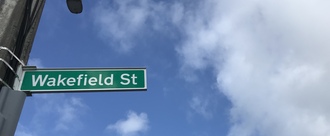



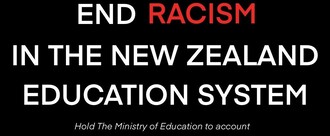.jpg)
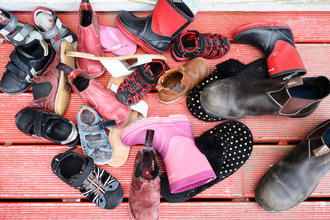
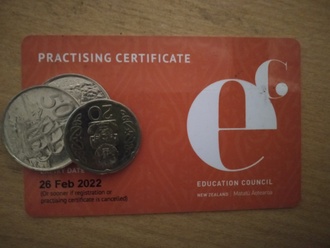
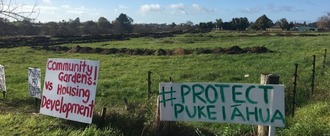


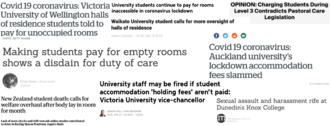.png)